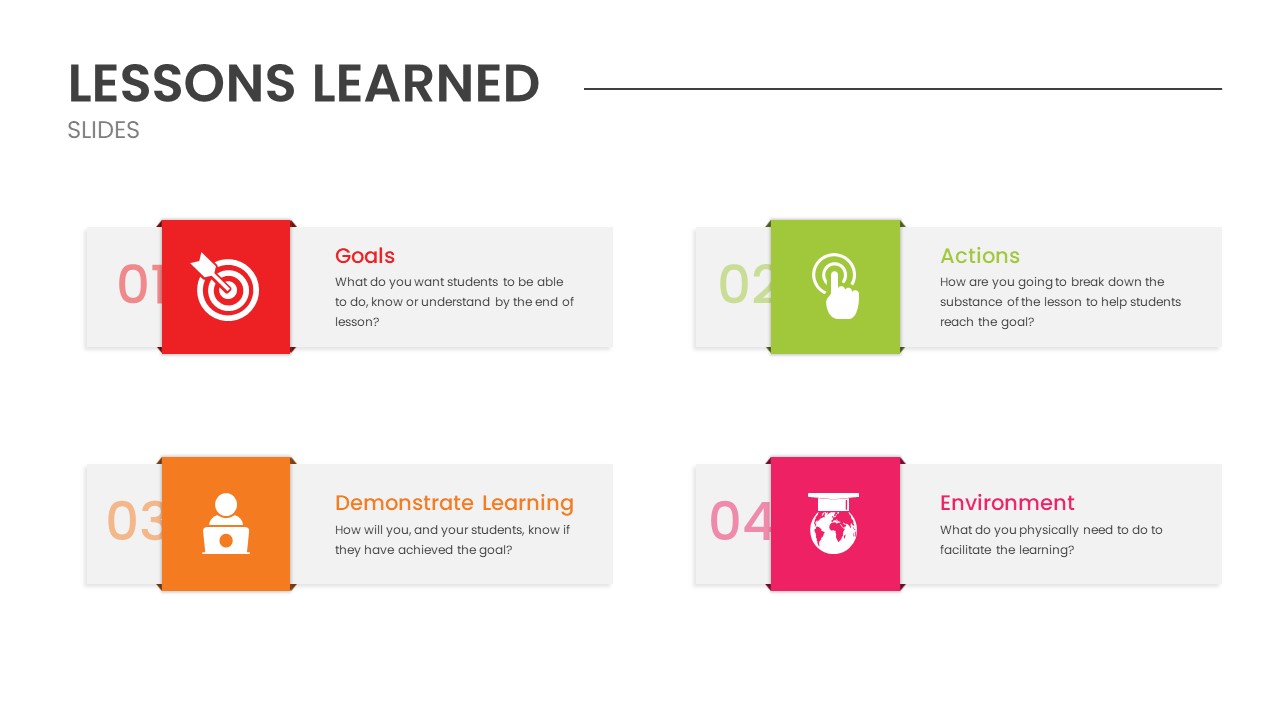This Week's Failures: Key Lessons Learned

Table of Contents
Missed Deadlines & Time Management
Missed deadlines are a common source of frustration and stress. This week, I experienced this firsthand, highlighting critical weaknesses in my time management strategies.
Causes of Missed Deadlines:
- Poor prioritization: I attempted to tackle too many tasks simultaneously, failing to identify and focus on the most crucial ones. Effective prioritization is key to deadline management.
- Unrealistic expectations/scope creep: The initial scope of a project expanded unexpectedly, adding extra work without adjusting the timeline. This is a classic pitfall of project management.
- Insufficient planning and task breakdown: I didn't break down large tasks into smaller, manageable steps, leading to overwhelming feelings and a lack of progress. Proper task breakdown is essential for effective time management.
- Distractions and interruptions: Constant email checks and unscheduled meetings significantly disrupted my workflow and impacted my ability to stay focused. Minimizing distractions is crucial for productivity.
Lessons Learned from Missed Deadlines:
- Implement time-blocking techniques: Allocating specific time blocks for focused work will improve concentration and task completion.
- Utilize project management tools (e.g., Trello, Asana): These tools offer better organization, task assignment, and progress tracking, leading to improved deadline management techniques.
- Learn to say "no" to avoid overcommitment: Taking on fewer tasks, and only those truly necessary, will prevent future overcommitment.
- Break down large tasks into smaller, manageable steps: This makes projects less daunting and allows for more frequent progress checks.
- Regularly review progress and adjust plans as needed: Flexibility is crucial; adjusting plans based on progress is key to effective project management and avoiding missed deadlines.
Communication Breakdown & Collaboration Issues
Effective communication is the bedrock of successful collaboration. This week, communication failures led to misunderstandings and delays.
Causes of Communication Failures:
- Lack of clear communication channels: Ambiguity in communication pathways caused confusion and missed information. Establishing clear communication protocols is vital.
- Ineffective feedback mechanisms: Delayed or unclear feedback hindered progress and created uncertainty. Regular and constructive feedback is essential for effective teamwork.
- Poor listening skills: Not actively listening to colleagues resulted in misinterpretations and unmet expectations. Active listening is a cornerstone of effective communication.
- Misunderstandings and assumptions: Making assumptions instead of clarifying details led to errors and wasted time. Clear and direct communication avoids assumptions.
Lessons Learned from Communication Issues:
- Establish clear communication protocols: Defining preferred methods and response times improves efficiency and understanding.
- Utilize multiple communication methods (email, meetings, instant messaging): Using a variety of communication methods can cater to different preferences and ensure information is conveyed effectively.
- Actively listen and seek clarification: Ensuring everyone understands the message before moving on prevents costly mistakes.
- Provide constructive feedback regularly: Regular feedback, delivered constructively, helps identify and resolve issues promptly.
- Document all important decisions and agreements: This creates a clear record and avoids future conflicts.
Technical Glitches & Unexpected Problems
Unexpected technical issues can derail even the best-laid plans. This week, I encountered several unforeseen problems that highlighted the importance of preparedness.
Causes of Technical Issues:
- Insufficient testing and quality assurance: Inadequate testing resulted in unexpected bugs and system errors. Thorough testing is critical for system reliability.
- Outdated software or hardware: Using outdated systems led to compatibility problems and performance issues. Regular updates are essential for optimal functionality.
- Unforeseen system failures: Unexpected server downtime resulted in project delays. Having contingency plans for system failures is essential for risk management.
- Lack of backup plans: The absence of backup systems magnified the impact of technical failures. Robust backup and disaster recovery systems are vital.
Lessons Learned from Technical Glitches:
- Implement thorough testing procedures: Rigorous testing ensures system stability and identifies potential issues before deployment.
- Regularly update software and hardware: Staying current with updates minimizes compatibility issues and improves performance.
- Develop robust backup and recovery systems: Having a comprehensive backup strategy minimizes downtime and data loss.
- Plan for contingencies and unexpected problems: Anticipating potential problems and developing mitigation strategies is crucial for effective risk management.
- Invest in reliable technology and infrastructure: Investing in quality technology minimizes disruptions and improves overall system reliability.
Conclusion: Turning This Week's Failures into Future Success
Analyzing "This Week's Failures" has provided invaluable insights into areas needing improvement. Missed deadlines highlighted the need for better time management strategies and project planning. Communication breakdowns emphasized the importance of clear channels, active listening, and constructive feedback. Technical glitches underscored the necessity of thorough testing, robust backup systems, and regular system maintenance. Viewing these setbacks as learning opportunities, rather than simply failures, is crucial for growth. By applying the lessons learned from these experiences, I am confident in improving my performance and achieving greater success in the future. Reflect on your own recent experiences; analyzing your failures and learning from past mistakes is key to improving performance after setbacks. Take the time to implement the strategies outlined above to minimize future disruptions and maximize your productivity.

Featured Posts
-
 Navigating Homeownership While Paying Off Student Loans
May 17, 2025
Navigating Homeownership While Paying Off Student Loans
May 17, 2025 -
 Middle Management The Bridge Between Leadership And Workforce Productivity
May 17, 2025
Middle Management The Bridge Between Leadership And Workforce Productivity
May 17, 2025 -
 Barcelona Match Car Crash 13 Injured Police Call It Accidental
May 17, 2025
Barcelona Match Car Crash 13 Injured Police Call It Accidental
May 17, 2025 -
 Chicago Showdown Hailey Van Lith And Angel Reeses Complex Relationship
May 17, 2025
Chicago Showdown Hailey Van Lith And Angel Reeses Complex Relationship
May 17, 2025 -
 Is Josh Hart The Knicks Draymond Green Analyzing His Impact
May 17, 2025
Is Josh Hart The Knicks Draymond Green Analyzing His Impact
May 17, 2025
Latest Posts
-
 40
May 17, 2025
40
May 17, 2025 -
 13 Analysts Rate Principal Financial Group Nasdaq Pfg What Investors Need To Know
May 17, 2025
13 Analysts Rate Principal Financial Group Nasdaq Pfg What Investors Need To Know
May 17, 2025 -
 Understanding Principal Financial Group Pfg Key Insights From 13 Analyst Reports
May 17, 2025
Understanding Principal Financial Group Pfg Key Insights From 13 Analyst Reports
May 17, 2025 -
 Update On Valerio Therapeutics S A S 2024 Financial Report Publication
May 17, 2025
Update On Valerio Therapeutics S A S 2024 Financial Report Publication
May 17, 2025 -
 Principal Financial Group Stock In Depth Analysis From 13 Analysts
May 17, 2025
Principal Financial Group Stock In Depth Analysis From 13 Analysts
May 17, 2025
